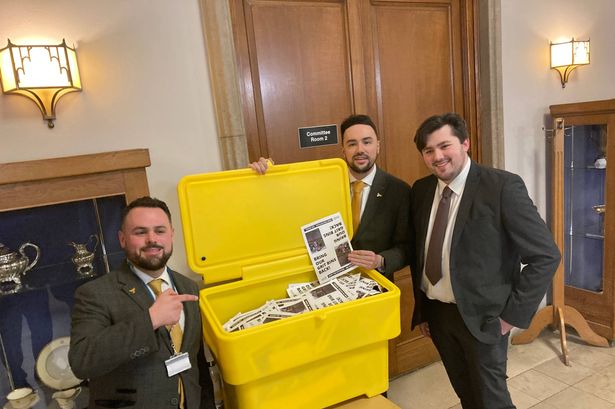Chancellor Rachel Reeves is preparing to present her Autumn Budget on November 26, 2024, which is expected to introduce significant economic changes that could affect taxpayers across the United Kingdom. The Labour government is facing increasing scrutiny over potential adjustments to income tax and other fiscal policies, with some senior officials reportedly divided on maintaining key manifesto commitments.
The Labour Party’s deputy leader, Lucy Powell, has publicly urged the government to uphold its pledge not to increase income tax, VAT, or national insurance. Despite these assurances, Reeves has acknowledged a substantial financial deficit, often referred to as a “black hole,” that must be addressed. She has described the forthcoming decisions as extraordinarily difficult, potentially leading to measures that may not be well-received by the public.
In a recent address at Downing Street, Reeves stated, “As I take my decisions on both tax and spend, I will do what is necessary to protect families from high inflation and interest rates, to protect our public services from a return to austerity and to ensure that the economy that we hand down to future generations is secure with debt under control.” This statement indicates the balancing act the Chancellor faces as she navigates the delicate economic landscape.
Potential Tax Increases and Savings Adjustments
Rumours of tax increases have circulated in anticipation of the budget announcement. While the government has not confirmed any tax hikes, it has not ruled them out either. According to a report from the Times, Reeves has indicated to the Office of Budget Responsibility (OBR) that increasing personal taxation will be a key focus of her upcoming budget. This move raises questions about who may bear the financial burden, with suggestions that a 2p rise in income tax and a corresponding 2p reduction in national insurance are possibilities.
There is also speculation regarding potential changes to the annual allowance for Individual Savings Accounts (ISAs). Currently, adults can save up to £20,000 annually into ISAs while enjoying tax benefits. However, reports from the Financial Times suggest that the Chancellor may consider reducing this allowance by as much as £10,000, effectively limiting tax-advantaged savings. Some analysts believe the cut might be less drastic, potentially lowering the limit by £8,000 instead.
The budget’s implications extend to fuel duty as well. Fuel duty has remained unchanged at 57.95p per litre, along with a 5p per litre discount initiated in 2022, which has been extended through the current budget cycle. Nonetheless, discussions are underway regarding the potential discontinuation of this discount when it expires in March 2026, which would increase fuel costs by 5p per litre.
New Tax Policies for Electric Vehicles
In a move that may affect electric vehicle (EV) owners, there are indications that the government plans to introduce new taxes in the upcoming budget. A spokesperson for the government indicated to the BBC that the aim is to create a “fairer system for all drivers,” potentially aligning EV taxation with that of petrol and diesel vehicles. Reports from the Daily Telegraph suggest the introduction of a pay-per-mile charge for EVs starting in 2028, with speculation that drivers may face a charge of 3p per mile. Hybrid vehicle drivers could also be subject to a similar fee, albeit at a reduced rate.
This proposed taxation contradicts the government’s ongoing efforts to encourage the transition to electric vehicles, having already invested £4 billion in initiatives to lower the upfront costs of qualifying EVs by as much as £3,750. The balance between encouraging EV adoption and ensuring equitable taxation for all drivers remains a contentious issue as the government prepares for the upcoming budget.
As the Labour Party navigates these complex fiscal decisions, the implications of the Autumn Budget are poised to resonate widely, impacting households and the broader economy in the months to come.







